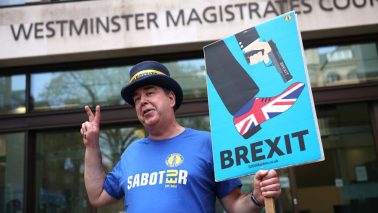The burden of higher taxation must fall on those with ‘the broadest shoulders’, says the Prime Minister, and City folks assume that means yet more raids on banks. Soft targets because no one loves them, they have also profited from higher interest rates. But they’re already subject to a surcharge on corporation tax and an extra levy on the size of their balance sheets – one effect of which has been to shrink their appetite for the corporate lending which is essential for Labour’s growth ambitions.
Loans to small- and medium-sized enterprises fell for five successive quarters to the end of last year and the level was still lower in Q1 2024 than in Q3 2022. Ask any of our Economic Innovator Award entrepreneurs how difficult it is even to open an account, never mind asking for an overdraft. The Chancellor’s priority should not be to treat banks as tax ATMs but to push them to support business customers better.
The McJobs generation
‘My first job was at McDonald’s when I was 16,’ says an Innovator entrant who runs a flourishing high street chain. ‘Mine too,’ chips in one of the judges, now a senior City financier, ‘and my whole hockey team.’ Fifty years ago this week, adverts appeared for £26-a-week opportunities in the UK’s first McDonald’s outlet, due to be opened in Woolwich by DJ Ed ‘Stewpot’ Stewart on 12 October. That anniversary has been promoted all summer, offering a chance to ponder its implications for inflation (burger, fries and shake, 48 pence then, £6.69 now) and public health: after half a century of fast food, the UK is the fattest nation in western Europe and the ‘birthday special’ 780-calorie Double Big Mac won’t help.
But more important is the question of whether all those starter jobs in McDonald’s and Burger King turned out good or bad for the career prospects of the teenagers concerned.









Comments
Join the debate for just £1 a month
Be part of the conversation with other Spectator readers by getting your first three months for £3.
UNLOCK ACCESS Just £1 a monthAlready a subscriber? Log in